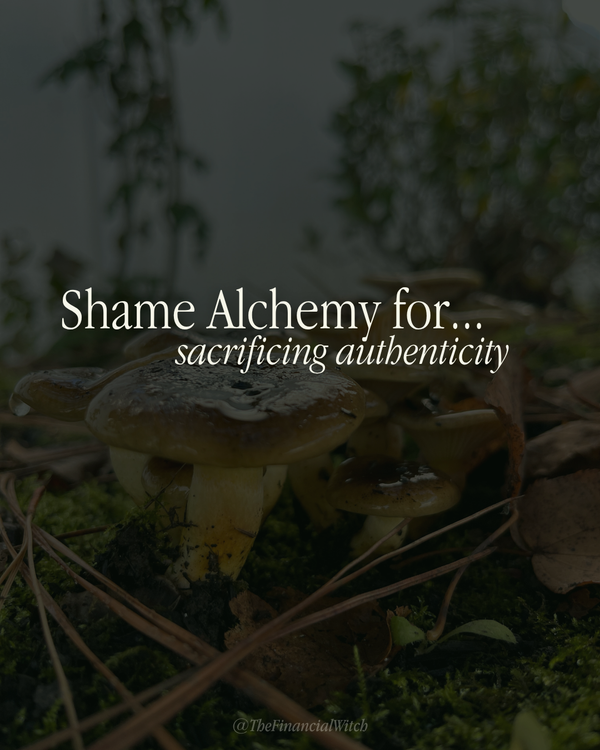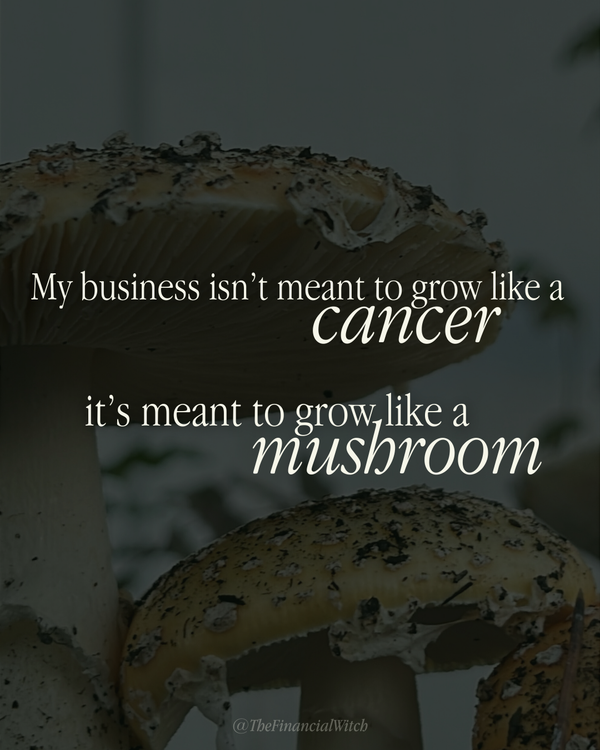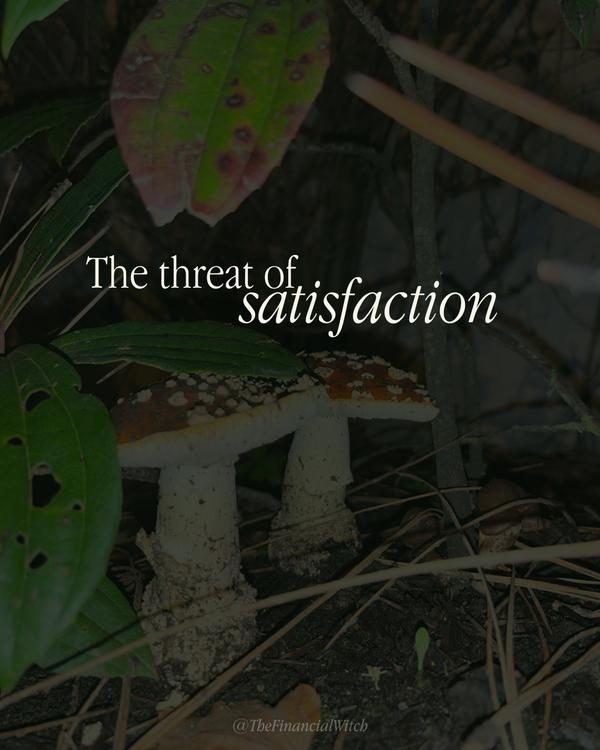The capitalist logic of visibility
Who gets to be queer?

We are six days into June, and just like every June since at least 2008 (when I started paying attention to things), there’s bi discourse again. But this time it’s got a new flavor: the scandal of a famous lesbian who falls in love with a man. If I had a nickel for every time this has happened this month, I’d have two nickels. Which isn’t a lot, but it’s fascinating that it’s happened twice.
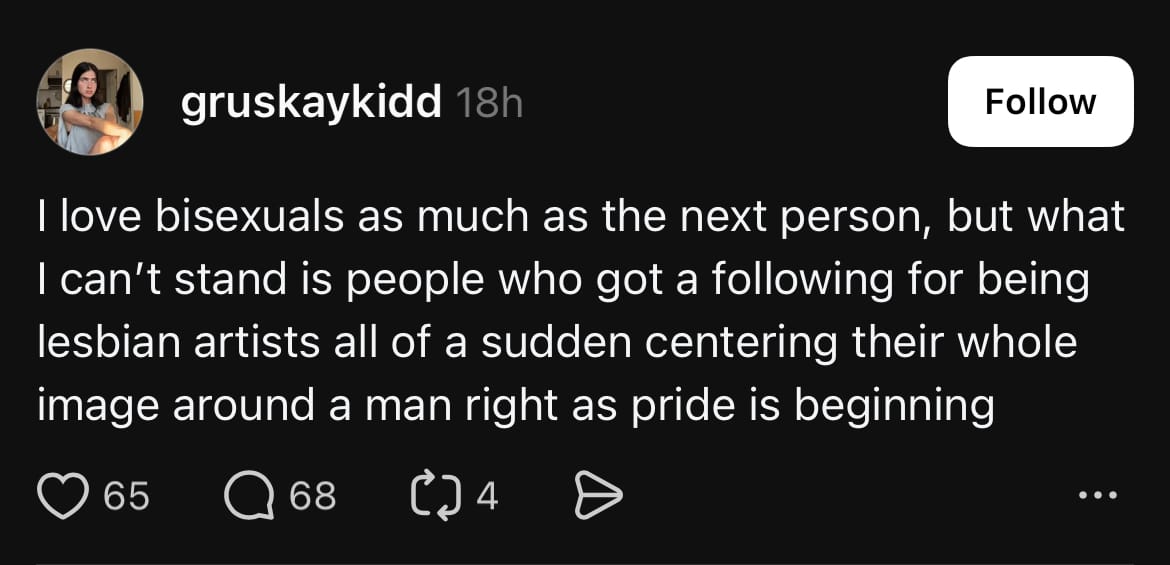
Jojo Siwa and Fletcher, two famous, queer people, are currently under intense scrutiny for the crime of going public with their romantic relationships with men. What I want to talk about today is going to focus solely on the accusations of betrayal from the queer community, especially sapphics, being lobbed at both Siwa and Fletcher.
The real scandal isn’t who they happen to be in love with, but rather the way these narratives have disrupted marketable narratives and exposed an uncomfortable truth within the economy of identity.
At this point, many world-aware queer folks can identify “rainbow-washing” as a capitalist tactic, especially during Pride month, and have witnessed at least a few examples of neoliberalism reshaping queerness into a brand, a market category, and a moral position, all wrapped up in one. Queerness is more than an identity or a lived experience, it’s also now a highly profitable demographic. Globally, queer people have over a trillion dollars in buying power, and consumer trends in the last few decades have swung heavily toward brands showcasing their inclusive values as a marketing tactic. Increasingly, young consumers are more queer and more attuned to the politics and practices of the brands they purchase from, meaning they are far more likely to spend money on a brand that reflects their values rather than a brand that grabs their attention with catchy slogans or clever social media campaigns.
With limitless access to information in the technological age, consumers are super-sleuthing brands to identify the disconnect between their words and their actions.
This type of discernment is a good thing, in my opinion, as it has forced many brands under an uncomfortable spotlight, highlighting their lack of efforts to support the queer community all year round, not just during Pride month, and the market has responded accordingly. More and more queer people aren’t falling for flashy marketing campaigns in June anymore; we want to know the companies we give our “pink money” to are also supporting us when it’s not immediately profitable.
However, it’s exactly this type of discernment that has also begun to mutate into something else, especially when it comes to accusations of people like Siwa & Fletcher “queerbaiting” and “changing teams”. The general consensus seems to be “yes, you’re allowed to change your mind, but not once I’ve given you my money or seen parts of myself reflected in you.” You bought into a person, not a brand, and then the person becomes the brand, and eventually they change in a way that challenges the previously established brand. There goes your investment--not to mention the time and energy you put into participating in the fandom.
Sorry to interrupt your reading, but it's urgent. My family and I have less than two weeks to relocate after losing our home. I am hosting a raffle with some incredible prizes for those who donate! Get more details & learn how to enter here.
When identity is marketed, it also becomes surveilled—by necessity. Public queerness, especially the kind deemed “representative”, gets rendered into a product that others then feel entitled to monitor, manage, and maintain. This is part market regulation, and part identity politics. Visibility, in this context, stops being a tool for liberation and becomes a site of self-policing. We’ve internalized the logic of branding so thoroughly that someone’s fluidity becomes perceived as a breach of contract—as if queerness were something owed, like deliverables, to those who got in on the ground floor and invested early.
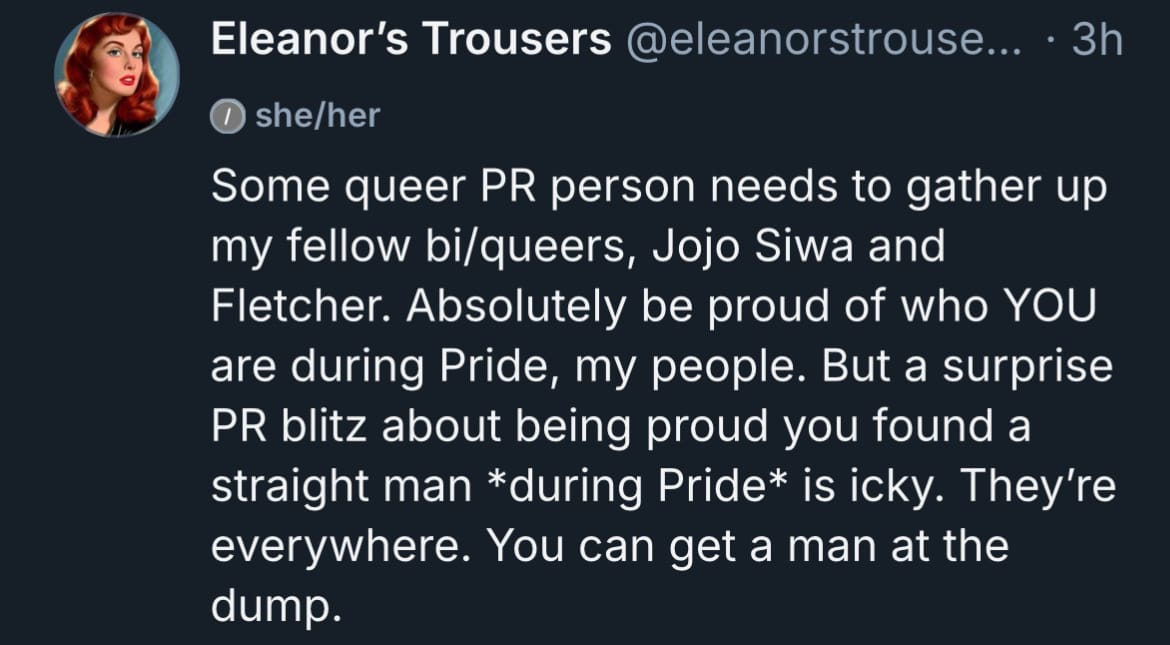
The moment queer people become an ally to capitalism is when we insist that a queer person’s deviation from an established identity is a “betrayal,” especially if we have previously invested in that identity—emotionally or materially. This is a demand for legibility, when queerness is meant to be inherently illegible to capitalism. Demanding legibility is a core component of white supremacy, and queer people of all ethnicities are guilty of it.
If queerness is being optimized for capital, it’s being drained of aliveness. If we want queerness to become illegible to capitalism, and therefore no longer profitable, we first have to loosen our grip on identity politics. If we want queerness to be un-commodifiable, we must stop viewing others’ queerness as something we can buy into.
The performative capitalism of Pride isn’t just exclusive to one month of the year, but it’s much more noticeable in June. This year is the first year where rainbow capitalism has not ramped up from previous year, but actually ramped down due to corporations’ capitulation to fascism, which is also likely fueling many sensitivities around who is actually queer, and who’s just gay for pay. The desire to see your own identity represented in the market is part of what allows identities to be optimized for capital.
As identity politics is wont to do, it has turned Pride month into a backdrop for a surveillance state which is replicated every time someone is lambasted for not performing their queerness correctly. We’ve taken the bait of “visibility” and turned inward on each other: make sure nobody fucks up the image of the entire group. But also, remember that queer people aren’t a monolith and we need to honor each person’s journey to their truest expression. However, don’t you dare be seen loving a man. Ew, gross. Embarrassing. During Pride month??? How can they do this to us? We fucking MADE them, they wouldn’t have the platform they have if they hadn’t written sapphic songs, this is a betrayal. It’s so icky. They were queerbaiting all along. They just wanted our gay dollars.
Even if that were true, say you did give them your gay dollars. Are you mad that you “lost” a member of your current queer cohort, or are you just experiencing the other side of your identity being reduced from a participatory culture to a consumerist one? What if this sense of betrayal isn’t from any perceived rug-pulls or queerbaiting, but actually stemming from a misguided attempt at collective shame management?

Beyond the obviously illogical layer of assigning morality to a sexual orientation, there’s a more subtle layer to this conversation, which is about what happens when we try to regulate our own sense of vulnerability around visibility—especially in times when visible queerness comes with increasing risks to our safety. If the instinct is to punish deviation from any expected or accepted storylines about your particular identity group, or to enact collective discipline around visibility, you might be responding to systemic shame.
This is what Shame Alchemy, as I’ve developed it, asks us to notice: that shame is not a moral failure but a survival response. It’s not just interpersonal, it's also infrastructural. It arises when a part of you senses that deviating from the expected performance could cost you something vital: safety, community, coherence, legibility. And under capitalism, legibility is a form of currency.
Capitalism never cared about queerness. It only cared about the parts it could sell. We know this, but when we lash out at each other for “failing” to live up to a purchased image of queerness, we’re doing the market’s work for it. We’re becoming the enforcement arm of its aesthetic regime. Shame, in this sense, has been cleverly rerouted. What was once a collective signal becomes a pressure to conform within a narrow set of ‘acceptable’ queer expressions.
Systemic shame is not just an emotion you experience; it’s a collective boundary. It’s the amalgamation of messaging we receive that tells us how to stay in line, and what’s at stake if our behavior falls out of line. But the problem in this particular system is that queerness is a state of being that automatically places you out of line. That is where capitalism swoops in (having created the systemic issue in the first place) and offers a lifeline to those who are out of line: a consumer culture. Produce and consume, and you will fall back in line. You will remain in the good graces of the dominant culture. We will even allow you to purchase representations of your queer identity and make you feel like you’re co-creating the careers of queer people.
It would be enough to just issue a blanket statement about queer people—queer women, especially—being allowed to change their minds or realize new things about themselves or yes, even fall in love with men. We could just say “attraction to men is a part of queerness” and be done. We could end it all there, because those statements are true. However, it truly seems to me that the feelings of betrayal being expressed from sapphics, lesbians, and bisexuals alike isn’t really about queers dating men, but an unspoken grief from being shown, again and again, that under late-stage capitalism, selling queerness to you is not the same thing as valuing or protecting your queerness.
Queerness that conforms to the logic of the market—by behaving, reassuring, performing predictably—is queerness that has been optimized for extraction.
As Naomi Klein wrote in No Logo, the moment a subculture becomes legible enough to be branded, it’s already on its way to being emptied out. What was once unruly becomes aspirational. What was once a refusal becomes a lifestyle category.
What if instead, you let your queerness be illegible as fuck?
Illegibility protects. It resists categorization, and therefore commodification. It short-circuits the systems that demand visibility only to exploit it.
There is nothing wrong with being seen. But there is something deeply wrong with being shaped only to be seen, especially by systems built to profit from your reflection. Illegibility, in that sense, isn’t invisibility. It’s something stranger. Messier. Harder to translate into content or sell as a feeling. It’s the part of queerness that refuses to perform, even when the performance would be rewarded.
Not everyone will understand that. And maybe they’re not supposed to.
Thank you for reading!
Your ongoing support makes it possible to continue writing, podcasting, & offering more sliding scale and no-cost offerings in the future. To become a Cosmic Co-Op member, click here.
Share this publication: like, comment, reply to this email, or link me on your social media! I love to receive thoughtful feedback and continue conversations beyond this platform--especially in our community Discord server.
If you would like to pay for a subscription, but don’t want to do so through Ghost, you can pay via my Venmo. If you’d like a paid subscription, but can’t afford it, please reach out to me and I’ll add you—no questions asked.

